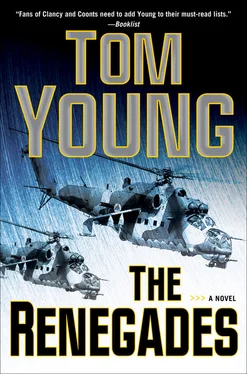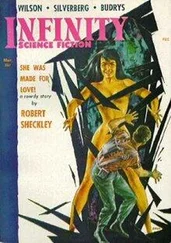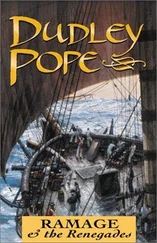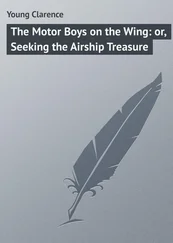“Sergeant Major,” Ann asked, “aren’t you the one who brought back that detainee from the C-130 that got shot down a few years ago?”
“I helped,” Gold said.
“I remember hearing about that on the news,” Lyndsey said. “It was right after I graduated from boot camp.”
Gold couldn’t recall what the media had reported at the time. For her safety, the Army refused to release her identity, and she had never given any interviews. The Air Force had done the same for Parson. Given his bluntness, Gold imagined Air Force public affairs would never let him anywhere near a television camera, anyway.
But within the military grapevine, their reputations had spread. Gold didn’t like to talk about the incident, and she certainly didn’t like attention resulting from it.
“We just did what the mission required,” Gold said. “Nothing more, nothing less.”
For her, the lesson learned was Charlie Mike. Continue Mission. You were put here for a reason, and if you remained alive, then you still had a job to do. As Parson might say, it wasn’t over until all your friends were standing around the funeral home talking about how natural you looked.
Terraced hills rolled by Gold’s window as the terrain began rising. Some of the layered fields grew more wheat, and others held rows of small trees. The orchards were too far away for Gold to identify the trees, but she guessed they were mulberries, or perhaps almonds or walnuts.
Blount twisted around in his seat, handed back three bottles of water. Gold took one and passed the others to Ann and Lyndsey. “Have you done a lot of these KLEs?” Blount asked.
“Not recently,” Gold said.
She’d done many key leader engagements back when she worked with the Provincial Reconstruction Teams. The groups would meet with tribal elders and try to coax them into helping build schools and roads, or at least not attacking schools and roads. It usually worked for as long as the company or battalion remained in the area. But when the troops left, the insurgents returned, often with the cooperation of villagers. She was beginning to wonder if all the schools, hospitals, and hydroelectric generators did any good. Did they win hearts and minds or just generate disappointment?
And Gold wasn’t sure she’d call this mission a KLE. More like a long shot in the dark on iron sights. She twisted open the water bottle and took a drink.
The road wound past a bluff pocked with small caves. Gold noticed Ann and Lyndsey gripping their rifles a little tighter. She knew what they were thinking. Hiding places near the road meant good spots for an ambush—or for a lone jihadist to sit with a cell phone or a radio, waiting for coalition forces to drive past. A press of a button would set off the IED. The gunner must have thought the same thing. His boots shifted around on the turret stand as he swiveled his weapon.
The bluff receded in the dust, and the dust got whipped away by the wind. The team drove past another farm where long-haired sheep roamed unfenced. The animals bleated and ran from the road as the Cougars rumbled past.
Around the next bend, Gold saw two boys walking a goat through a field. Both looked about twelve, and one held a length of hemp looped around the goat’s neck. The animal had black fur, two stubby horns, and yellow eyes. The goat twisted and pulled against the rope in what seemed a halfhearted attempt at escape. Gold waved at the boys, though she doubted they could see her through the window shields.
One of the kids—in an Adidas T-shirt—reached down and picked up a stone. He hurled it at the Cougar. Gold watched it spin toward her like a rifled bullet. The rock clanged against the steel plating over her head. The gunner’s feet shifted again, but he did not fire. Gold heard him mutter, “Bite my ass, you little shit.”
“Takes balls to attack an armored vehicle with a rock,” the driver said.
“They know we won’t open up on them,” Blount said.
Gold sighed, moved her rifle from the crook of one elbow to another. Hearts and minds. She wondered if there was anything she could ever do, any good she could accomplish, by which she might arrive at contentment. Of course she would press on, do her best. But her continued efforts reminded her of Samuel Johnson’s line about the triumph of hope over experience.
Her Blue Force Tracker chimed. She unzipped its pouch and saw she had a message. She pressed on READ and saw: HOW GOES IT? MP.
She pulled off her gloves to compose her answer: OK. ABOUT HALFWAY THERE. U?
A moment later the BFT chimed once more: GETTING READY TO FLY.
Gold considered ending the exchange, but somehow texting with Parson pulled her out of the sour mood brought on by the thrown rock. She wrote one more message: SOME KID JUST BOUNCED ROCK OFF MRAP. When the BFT chimed again, it said: DID U THROW ROCKS BACK?
She smiled, cleared the screen, looked outside. The vehicles splashed through a muddy spot. The water came from a narrow stream that cut through a wheat field and ran across the road without benefit of a culvert. It had not rained since Gold’s arrival in Afghanistan, so she guessed the stream was fed year-round by snowmelt from higher elevations.
At the edge of the field lay a rusting hulk, the wreckage of a Soviet aircraft. A wing had broken off, but the fuselage remained pretty much intact. Part of a red star was still visible on the tail. From the condition of the wreckage, Gold surmised the plane had not burned, but that its crew had crash-landed. Reminded her a little too much of her first day with Parson.
The aircraft looked like some kind of transport, though she had no idea of the model. Parson would know. Vines grew around the two bent propellers.
Beyond the field came a barren stretch of ground. The ride grew rougher, and Gold could see why. The soil was so choked with rocks that the ground seemed almost paved in cobblestone.
The Cougars drove past a bombed-out compound. Roofless mud-brick walls crumbled against wooden beams. The gunner’s feet shuffled. More hiding places here, too.
The compound disappeared behind them without incident. Next, Gold noticed a pile of stones beside the road, maybe six inches high, as if to mark something. She puzzled over that for just an instant.
An explosion slammed the vehicle from underneath. The Cougar lifted into the air a few inches, thudded back to earth. All of Gold’s bones seemed to rattle against one another. Her ears popped. She could hear the shouts of the Marines, but from far away.
* * *
Parson didn’t like the look of the sky. Lens-shaped clouds hovered over the mountains, paralleling the ridgelines. An untrained observer might have called them pretty, but Parson knew standing lenticular clouds resulted from strong wind flowing across high terrain. The wind carried moisture that condensed as it got lifted higher, forming a telltale convex shape. That meant turbulence. Maybe it was better that Gold had gone by road after all. But he and Rashid’s crew had no choice but to fly.
He took one final look up at the cloud formations, tromped up the boarding steps. The air was cool again today, but he wore no jacket. His body armor and survival vest kept him warm enough.
Inside the Mi-17, Rashid punched a start button for the left engine. When the engine reached the proper RPM, he moved an overhead stopcock lever to feed fuel, and the Klimov lit off. Rashid repeated the process for the right engine, then let both of them stabilize at idle.
Parson listened to Rashid, Aamir, and Sharif clean up the engine start checklist, their Pashto incomprehensible to him. He hadn’t bothered to replace Gold with another interpreter for this flight. It was a simple mission—just take a load of food and two passengers up to another devastated village. Reyes rode along in case the crew ran into more injured refugees, and the crew chief manned his door gun. The passengers were civilians from that urban rescue team in Virginia, and one of them brought a cadaver dog with him. The Belgian Malinois whined and pawed in its kennel.
Читать дальше












